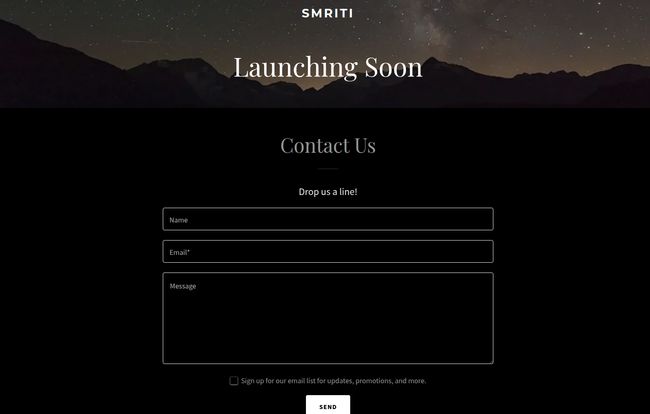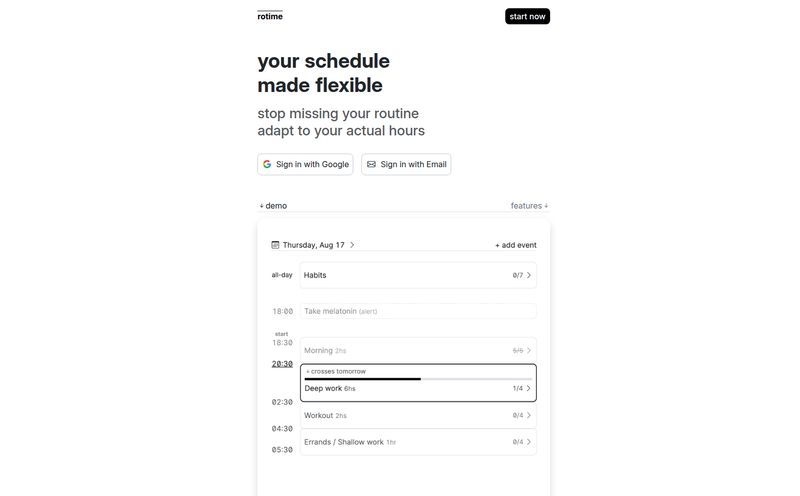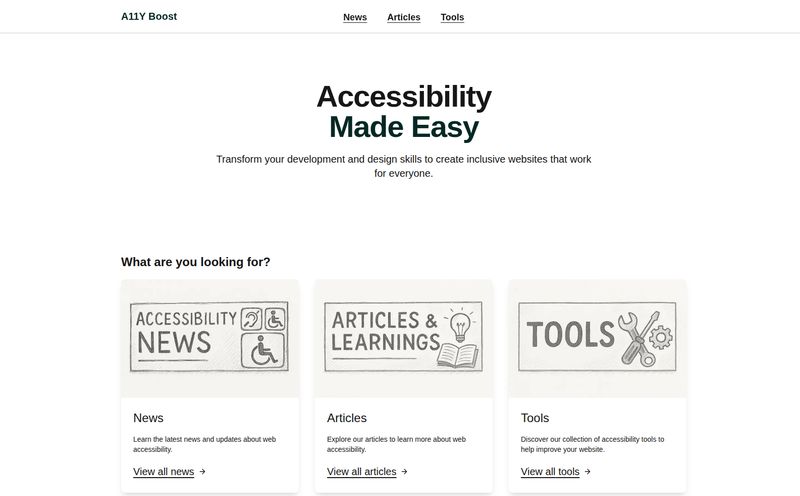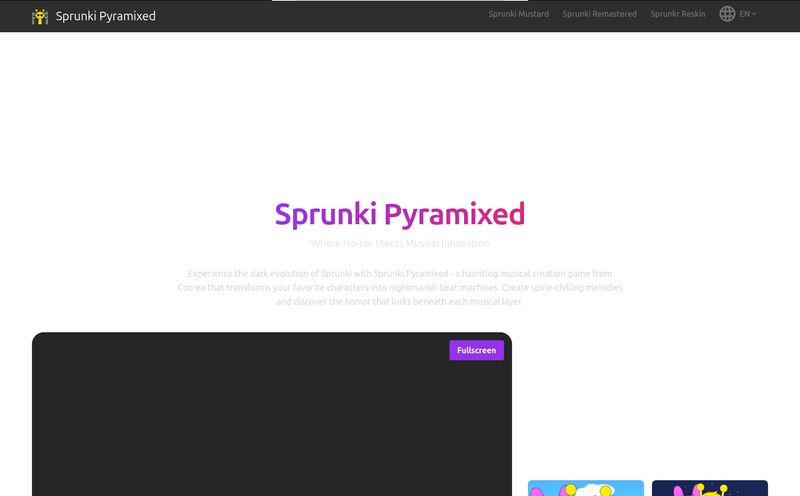The IELTS writing test. Those two words are enough to make even the most confident English speaker break out in a cold sweat. I've spent years in the traffic generation and SEO space, and I've seen it all, but the sheer panic surrounding IELTS Task 2 is something else. It’s a unique beast, a blend of art and science where your brilliant ideas can be sunk by a misplaced comma or a less-than-academic word choice.
For ages, the only way to get real feedback was to shell out cash for a tutor. And while a good tutor is worth their weight in gold, they’re not always available at 2 a.m. when you’ve had a sudden burst of inspiration (or desperation). So, when I heard whispers of a new AI tool called Smriti designed specifically for IELTS essay evaluation, my ears perked up. Another player in the AI EdTech space? Color me intrigued.
So, What Exactly is Smriti?
From the early info I've managed to scrape together, Smriti isn't just another grammar checker like Grammarly. No, this tool is being built with a very specific mission: to evaluate your essay using the exact same criteria as a real-life IELTS examiner. We're talking about the big four:
- Task Response: Did you actually answer the question, or did you go off on a wild tangent?
- Coherence and Cohesion: Does your essay flow logically? Are your ideas connected in a way that makes sense?
- Lexical Resource: Your vocabulary. Are you using a good range of words correctly, or are you just repeating 'good' and 'bad'?
- Grammatical Range and Accuracy: The nuts and bolts of your sentence structure and punctuation.
The idea is simple. You paste your practice essay into Smriti, and the AI gets to work, analyzing it against these pillars. What it spits back out is the holy grail for any IELTS candidate: a predicted Band score out of 9 and, more importantly, detailed feedback on where you went right and where you stumbled. It’s like having a pocket-sized examiner on call, 24/7.

Visit Smriti
The Big Promise: What Smriti Aims to Deliver
If Smriti delivers on its promises, it could be a game-changer for self-study students. The main advantage is immediate, data-driven feedback. You no longer have to write an essay and just hope it's good enough. You can write, get a score, see your mistakes, and immediately work on them. That iterative loop of practice-feedback-improvement is incredibly powerful.
Imagine this: you write an essay about climate change. Smriti might come back with a 6.5, but with notes saying your 'Task Response' was great, but your 'Lexical Resource' was weak because you used the word "important" twelve times. Ouch. But also, incredibly useful. Now you know exactly what to focus on for the next attempt. You can spend an hour looking up synonyms for 'important' and try again. That’s targeted practice, not just blind repetition.
The Elephant in the Room: Can an AI Really Grade an IELTS Essay?
Now for the skepticism. I can hear some of you already. "But can a robot truly understand the nuance of my argument?" And that's a fair question. The short answer is… probably not perfectly.
I've seen my share of AI tools, and while they are phenomenal at spotting patterns—grammatical errors, repetitive phrasing, structural issues—they can sometimes miss the forest for the trees. An AI might not appreciate a cleverly subtle point or a highly creative analogy. It’s programmed to look for expected structures and vocabulary. This is both its strength and its weakness. It's a fantastic coach for drilling the fundamentals, but it might not be the best judge of a truly unique, high-level Band 9 masterpiece.
"In my experience, AI tools are best used as a supplement, not a replacement. Think of Smriti as your tireless training partner, the one who makes you do the drills over and over. Your human tutor is the head coach, who helps you with strategy and spirit."
So, should you ditch your tutor? No. But should you use a tool like Smriti to sharpen your skills between sessions? Absolutely. It’s about using the right tool for the right job.
What We Know About Smriti's Pricing (Hint: Not Much)
Here’s the rub. As of right now, the Smriti website is a simple "Launching Soon" page. There's no pricing, no live demo, just a contact form to get on the mailing list. It's all very mysterious.
Based on trends in the SaaS and EdTech world, I'd wager they'll go with one of a few models:
- A Freemium Model: Maybe you get 1-2 free essay checks per month, with a subscription to unlock unlimited checks and more detailed analytics. This is a popular way to get users hooked.
- A Tiered Subscription: A basic plan for a certain number of checks, and a premium plan with more in-depth feedback or other features.
- Pay-Per-Use: A credit-based system where you buy a bundle of, say, 10 essay evaluations.
Personally, I’m hoping for a generous freemium model. It would make the tool accessible to students worldwide, regardless of their budget, and that feels like the right move for something as globally important as IELTS prep.
Getting Ahead of the Curve Before Launch
Since the tool isn't live yet, you have a unique opportunity. The website currently has a simple contact form. My advice? Get on that email list. You'll likely be the first to know when it launches, and there's often an early-bird discount or a special offer for the first wave of users. In the world of online marketing, that early-access list is pure gold.
While you wait, keep practicing. Go to the official IELTS website and familiarize yourself with the official band descriptors. The more you understand what examiners are looking for, the more effective a tool like Smriti will be when you finally get your hands on it.
Frequently Asked Questions About Smriti
Is the Smriti AI tool free to use?
The pricing details haven't been released yet as the tool is still in its pre-launch phase. It's likely to follow a freemium or subscription model, but we'll have to wait for the official launch to know for sure.
How accurate will the AI band score be?
While the goal is to be highly accurate by using official IELTS criteria, it's best to view the AI score as a very strong prediction and a guide. It's a diagnostic tool to help you identify weaknesses, but it may not always be a perfect 1-to-1 match with a human examiner's final score.
Who is this tool for?
Smriti is designed for anyone preparing for the IELTS Academic or General Training writing tests. It's especially helpful for students who are self-studying, need frequent feedback, or want to supplement their sessions with a human tutor.
Can Smriti evaluate both Task 1 and Task 2 essays?
The initial information focuses on 'essay evaluation', which typically points towards Task 2. We'll need to see if the final product also supports Task 1 (describing charts, graphs, or letters), which requires a different set of analytical capabilities.
Will my data and essays be kept private?
This is a crucial question for any online platform. While not explicitly stated yet, a reputable service will have a clear privacy policy. Always check the terms of service upon launch to understand how your data is handled.
My Final Thoughts
I'm cautiously optimistic about Smriti. The world of test prep is ripe for disruption, and a well-designed AI can provide immense value, democratizing access to the kind of feedback that was once a luxury. The potential to get instant, data-backed insights on your IELTS writing is huge.
Of course, the proof will be in the pudding. The quality of the AI's analysis and the user-friendliness of the platform will determine if it becomes a go-to resource or just another flash in the pan. I, for one, have signed up for the email list and will be watching this space closely. You should too.
Reference and Sources
- Official IELTS Website: https://www.ielts.org/
- For a broader look at AI in education, a good starting point is research found on platforms like TechCrunch which often covers EdTech trends.



